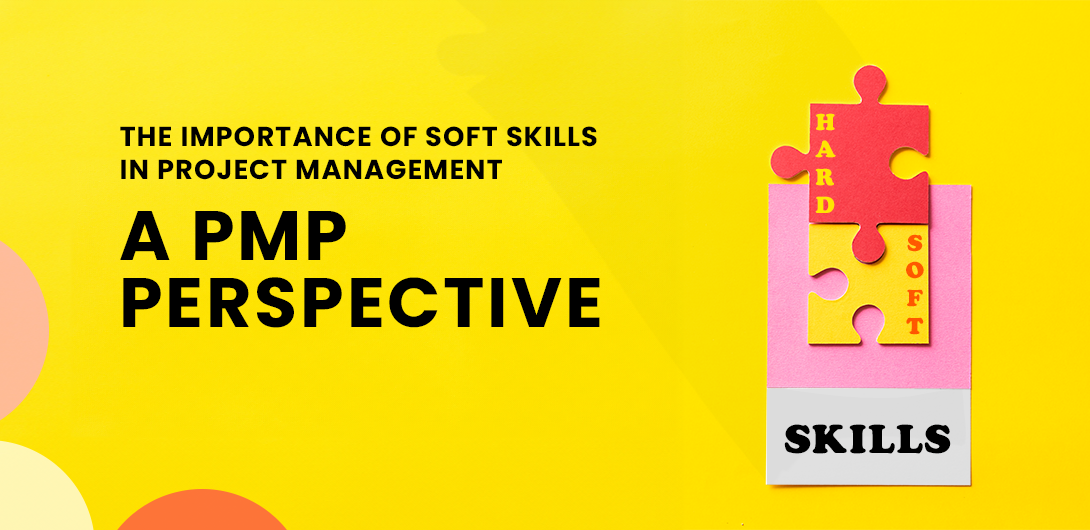Introduction
When you think of project management, what comes to mind first? Setting timelines, managing resources, and keeping the budget in check? These are all essential, but experienced project managers know there’s more to the story. The unsung heroes of successful project management are soft skills—the interpersonal and communication abilities that keep a team motivated, engaged, and on track. In this post, we’ll explore why these skills are crucial for any Project Management Professional (PMP) and how they make a real difference in the success of a project.
Understanding Soft Skills in Project Management
What Are Soft Skills?
Soft skills include interpersonal abilities like empathy, communication, and teamwork. Unlike hard skills, which are technical and measurable, soft skills are subtle and essential for effective collaboration.
Hard Skills vs. Soft Skills in Project Management
Hard skills focus on technical abilities (like scheduling and budgeting), while soft skills revolve around interpersonal interactions. Together, they create a well-rounded project manager.
Key Soft Skills in Project Management
Communication Skills: Ensures clarity and reduces misunderstandings.
Leadership Skills: Motivates team members and aligns them with project goals.
Conflict Resolution Skills: Manages disputes constructively.
Problem-Solving Skills: Addresses challenges with creativity.
Negotiation Skills: Balances stakeholder interests effectively.
Adaptability and Flexibility: Adjusts to changes and stays resilient.
Emotional Intelligence: Fosters trust and positive team dynamics.
Why Soft Skills Matter for PMP’s
PMP certification emphasizes the role of soft skills as part of its training. Effective leadership, active listening, and conflict resolution are just a few interpersonal areas that PMI (Project Management Institute) prioritizes. These competencies allow project managers to go beyond just managing tasks, helping them to inspire, negotiate, and guide teams toward project success. Soft skills bridge the gap between planning and execution by fostering strong relationships and a positive work environment.
How Soft Skills Improve Project Outcomes
Projects rarely unfold exactly as planned. With unexpected changes, a PMP-certified manager must respond quickly and often rely on soft skills like adaptability and resilience to keep the project on track. By promoting open communication and empathy, they can also ensure that team members feel supported, which in turn boosts morale and productivity.
How Soft Skills Complement Hard Skills in PMP
PMP-certified managers who balance hard and soft skills can manage projects more effectively, as they combine technical knowledge with interpersonal finesse.
The Impact of Soft Skills on Stakeholder Relationships
Building trust through empathy and transparency is essential in project management. Soft skills like emotional intelligence help PMPs strengthen stakeholder relationships and manage expectations effectively.
The Role of Soft Skills in Project Success Rates
Studies link strong soft skills to higher project success rates. Effective communication, leadership, and conflict resolution reduce project risks and help keep projects on schedule.
How PMP Certification Supports Soft Skill Development
PMP certification includes training in essential soft skills, with case studies and role-playing exercises designed to strengthen interpersonal capabilities alongside technical expertise.
Challenges in Developing Soft Skills
Developing soft skills can be challenging, as they require consistent practice, feedback, and self-awareness. However, the benefits for project success and career advancement make the effort worthwhile.
The Importance of Continuous Learning in Soft Skills
Soft skills evolve with workplace dynamics, making continuous improvement essential. Workshops, seminars, and self-reflection help PMPs keep these skills sharp.
Soft Skills in Remote and Hybrid Project Management
Managing virtual teams requires enhanced communication, cultural sensitivity, and adaptability. Soft skills are crucial for fostering connection and collaboration in remote settings.
Soft Skills for Career Growth in Project Management
PMPs with strong soft skills often find greater career opportunities, as these skills help them lead projects and teams effectively, making them valuable assets to employers.
Tips for Improving Soft Skills in Project Management
Active Listening: Pay attention to team members and stakeholders.
Seek Feedback: Regular feedback aids improvement.
Invest in Training: Courses on communication and leadership are beneficial.
Self-Reflect: Review interactions to identify areas for growth.
Conclusion
Soft skills are essential for PMP-certified project managers aiming to excel in their careers. By combining technical abilities with interpersonal skills, PMPs can lead successful projects, foster team cohesion, and build lasting stakeholder relationships.
Master both hard and soft skills with Infocareer‘s PMP training. Transform your project management journey today!








